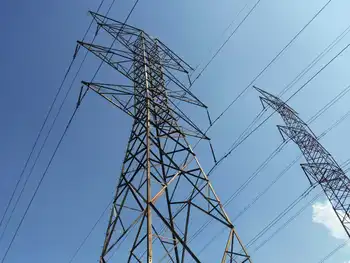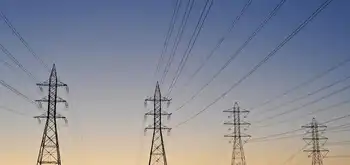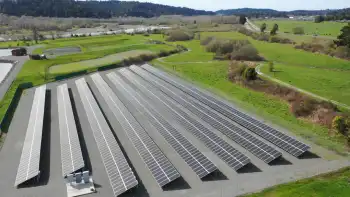Alternative energy discussed
By Associated Press
High Voltage Maintenance Training Online
Our customized live online or in‑person group training can be delivered to your staff at your location.

- Live Online
- 12 hours Instructor-led
- Group Training Available
Senate Energy, Infrastructure and Transportation Chairman Mike Schneider commented as the head of an advisory panel discussed power lines that would link solar, wind and geothermal energy generating sites, making the energy available for Nevadans to use.
Gov. Jim Gibbons formed the Nevada Renewable Energy Transmission Access Advisory Committee to plan for use of renewable resources within the state and for export to markets outside the state.
Currently, thousands of megawatts of renewable energy resources with poor or no transmission capabilities have been identified throughout the state, RETAAC Chairman Daniel Schochet told the committee.
Schochet said the resources include geothermal energy in northern rural areas, wind energy in north-central rural regions and solar energy in the south. He added there's no direct power line between northern and southern energy grids in Nevada.
The transmission lines also have the potential to help rural Nevada develop economically if alternative power projects are built there, Schochet said.
Mario Villar of NV Energy, Nevada's major utility, said transmission lines act as a "highway" for electric power, transmitting energy efficiently over long distances, creating jobs and reducing energy costs.
Transmission also allows regions with different seasonal resources to share energy generation. In materials provided to the panel, Villar used the example of Southern California selling power to the Pacific Northwest in the winter.
Schneider, D-Las Vegas, said the transmission line presentation was timely, given U.S. Senate Majority Leader Harry Reid's introduction of the Clean Energy and Economic Development Act of 2009.
"Transmission is a big piece of the energy puzzle and already we've already heard a lot between the connection, between access and transmission and development of renewable energy in Nevada," Schneider said.
In unveiling the proposal, Reid, D-Nev., said an increased federal role in locating power lines was needed to encourage greater availability of electricity produced from wind, solar, geothermal and other renewable energy sources. The proposal is expected to become part of a broader energy bill the U.S. Senate plans to take up in the coming weeks.
Reid's measure would give the president authority to declare "renewable energy zones" that have great potential for generating electricity from renewable sources such as wind and solar but which have no high-voltage transmission lines to bring that power to consumers.
Schneider said the discussion of transmission lines will continue during upcoming meetings of his committee.
Lawmakers also reviewed a bill that would require state-regulated energy companies to account for future costs of carbon emission regulations in their long-term planning.
Steve Wiel, the Nevada representative of the Southwest Energy Efficiency Project, said SB165 would force the state Public Utility Commission to modify its regulations to require that long-term business planning for NV Energy take into consideration the future cost of carbon emissions they have to pay.
Wiel said because of legislation currently being discussed at a federal level, it is likely that companies will have to purchase credits to pay for the amount of carbon dioxide gases they emit. SB165 makes companies take this into consideration for future decision-making.
If a utility chooses a power source with high carbon emissions because it's cheaper "and all of a sudden you have to start literally paying out of your pocket for those carbon emissions, this high carbon-emitting option became very expensive," Wiel said outside the hearing. "And who pays? The consumer."
Judy Stokey of NV Energy told lawmakers that she didn't think the bill is needed now, and John Owens of NV Energy added the company already has plans for managing carbon emissions. He added that future federal legislation would have significant consequences on modeling carbon legislation.
"So you're just going to continue on the same path until President Obama and Harry Reid and Nancy Pelosi tell you you have to do other?" Schneider responded.
PUC representatives said they didn't have a position on the bill.











